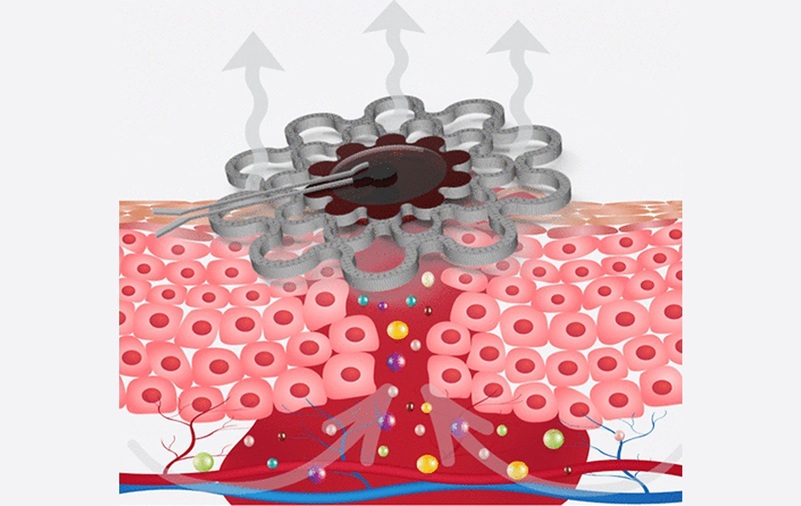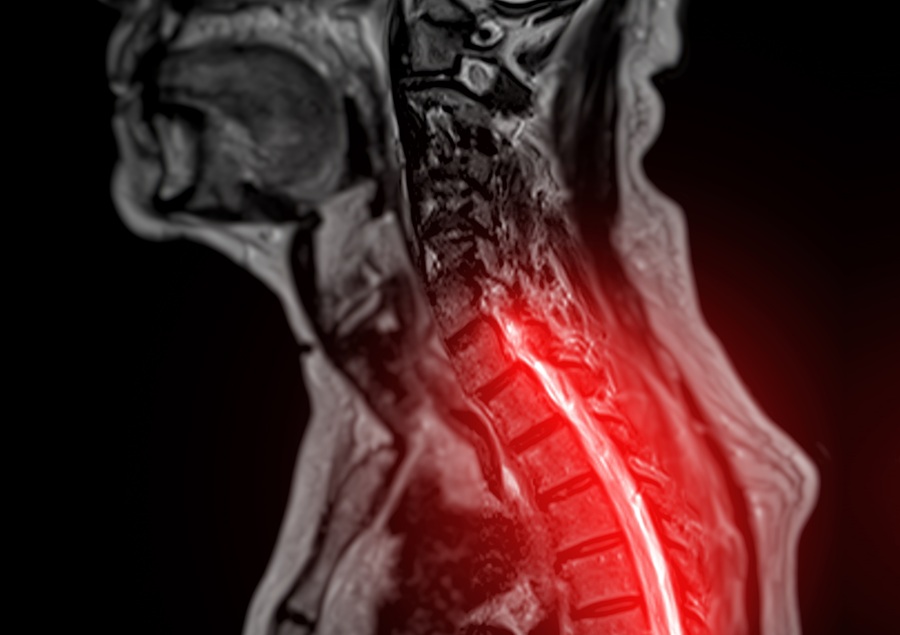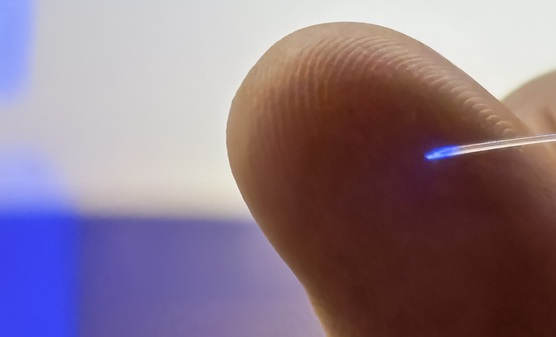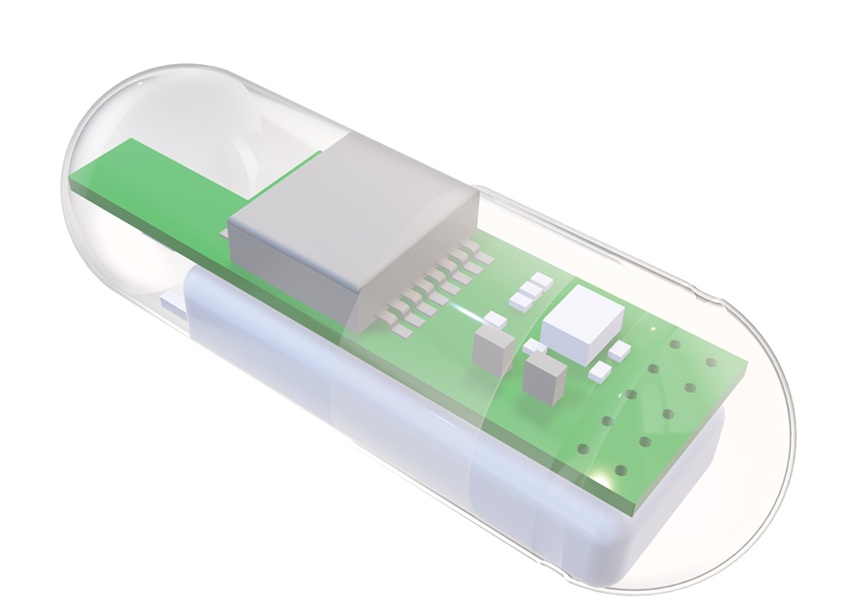Human Trial of Pill That Could Reduce COVID-19 Related Lung Damage Begins At First US Clinical Trial Site
|
By HospiMedica International staff writers Posted on 11 Aug 2020 |

Illustration
Ifenprodil, a drug in pill form repurposed by Algernon Pharmaceuticals (Vancouver, BC, Canada) to treat COVID-19 damage in the lungs, is being tested as a possible treatment on coronavirus patients for the first time in the US.
The Westchester General Hospital in Miami, Florida, is the first American research center to test the Ifenprodil pill that was developed in the 1970s to treat blood circulation disorders and could help reduce some COVID-19 side-effects in the lungs. Ifenprodil is an N-methyl-D-aspartate (NMDA) receptor antagonist specifically targeting the NMDA-type subunit 2B (Glu2NB) and prevents glutamate signaling. The NMDA receptor is found on several tissues, including lung cells, T-cells, and neutrophils.
Algernon began exploring Ifenprodil (NP-120) as a possible treatment for COVID-19 when it discovered an independent research study that showed the drug was active in an animal model for H5N1, the world’s most lethal avian flu, with an approximately 60% mortality rate in humans. In the study, Ifenprodil reduced mortality by 40% and reduced acute lung injury and inflammation in the lung tissue. Following its own animal data showing Ifenprodil’s reduction of lung fibrosis in two separate studies, the company is investigating Ifenprodil to determine if it can reduce the severity and duration of a COVID infection. Algernon believes that Ifenprodil can reduce the infiltration of neutrophils and T-cells into the lungs where they can release glutamate and cytokines respectively. The latter can result in the highly problematic cytokine storm that contributes to the loss of lung function and ultimately death as has been reported in COVID-19 infected patients.
Algernon has completed its clinical trial agreement with Westchester Research Center at Westchester General Hospital in Miami, Florida, for its multinational Phase 2b/3 human study of Ifenprodil for COVID-19 and is in final contractual negotiations with four additional US clinical sites. The company has already received ethics approval from a central institutional review board for all of the US study sites. The company is also in the final stages of completing contractual negotiations and receiving ethics approval in Australia, Romania and the Philippines.
“Of the five US research institutions we have been working with, two are located in Florida where they have recently had a significant number of confirmed COVID-19 cases,” said Christopher J. Moreau CEO of Algernon Pharmaceuticals. “We look forward to working with Dr. Gonzalez and appreciate her work in helping to get the trial started at Westchester General as soon as possible.”
Related Links:
Algernon Pharmaceuticals
The Westchester General Hospital in Miami, Florida, is the first American research center to test the Ifenprodil pill that was developed in the 1970s to treat blood circulation disorders and could help reduce some COVID-19 side-effects in the lungs. Ifenprodil is an N-methyl-D-aspartate (NMDA) receptor antagonist specifically targeting the NMDA-type subunit 2B (Glu2NB) and prevents glutamate signaling. The NMDA receptor is found on several tissues, including lung cells, T-cells, and neutrophils.
Algernon began exploring Ifenprodil (NP-120) as a possible treatment for COVID-19 when it discovered an independent research study that showed the drug was active in an animal model for H5N1, the world’s most lethal avian flu, with an approximately 60% mortality rate in humans. In the study, Ifenprodil reduced mortality by 40% and reduced acute lung injury and inflammation in the lung tissue. Following its own animal data showing Ifenprodil’s reduction of lung fibrosis in two separate studies, the company is investigating Ifenprodil to determine if it can reduce the severity and duration of a COVID infection. Algernon believes that Ifenprodil can reduce the infiltration of neutrophils and T-cells into the lungs where they can release glutamate and cytokines respectively. The latter can result in the highly problematic cytokine storm that contributes to the loss of lung function and ultimately death as has been reported in COVID-19 infected patients.
Algernon has completed its clinical trial agreement with Westchester Research Center at Westchester General Hospital in Miami, Florida, for its multinational Phase 2b/3 human study of Ifenprodil for COVID-19 and is in final contractual negotiations with four additional US clinical sites. The company has already received ethics approval from a central institutional review board for all of the US study sites. The company is also in the final stages of completing contractual negotiations and receiving ethics approval in Australia, Romania and the Philippines.
“Of the five US research institutions we have been working with, two are located in Florida where they have recently had a significant number of confirmed COVID-19 cases,” said Christopher J. Moreau CEO of Algernon Pharmaceuticals. “We look forward to working with Dr. Gonzalez and appreciate her work in helping to get the trial started at Westchester General as soon as possible.”
Related Links:
Algernon Pharmaceuticals
Latest COVID-19 News
- Low-Cost System Detects SARS-CoV-2 Virus in Hospital Air Using High-Tech Bubbles
- World's First Inhalable COVID-19 Vaccine Approved in China
- COVID-19 Vaccine Patch Fights SARS-CoV-2 Variants Better than Needles
- Blood Viscosity Testing Can Predict Risk of Death in Hospitalized COVID-19 Patients
- ‘Covid Computer’ Uses AI to Detect COVID-19 from Chest CT Scans
- MRI Lung-Imaging Technique Shows Cause of Long-COVID Symptoms
- Chest CT Scans of COVID-19 Patients Could Help Distinguish Between SARS-CoV-2 Variants
- Specialized MRI Detects Lung Abnormalities in Non-Hospitalized Long COVID Patients
- AI Algorithm Identifies Hospitalized Patients at Highest Risk of Dying From COVID-19
- Sweat Sensor Detects Key Biomarkers That Provide Early Warning of COVID-19 and Flu
- Study Assesses Impact of COVID-19 on Ventilation/Perfusion Scintigraphy
- CT Imaging Study Finds Vaccination Reduces Risk of COVID-19 Associated Pulmonary Embolism
- Third Day in Hospital a ‘Tipping Point’ in Severity of COVID-19 Pneumonia
- Longer Interval Between COVID-19 Vaccines Generates Up to Nine Times as Many Antibodies
- AI Model for Monitoring COVID-19 Predicts Mortality Within First 30 Days of Admission
- AI Predicts COVID Prognosis at Near-Expert Level Based Off CT Scans
Channels
Artificial Intelligence
view channelCritical Care
view channel
Specialized Dressing with Sensor Monitors pH Levels in Chronic Wounds
Any wound has the potential to become chronic, but the risk is significantly higher in individuals with certain medical conditions. Once a wound becomes chronic, healing slows, complications increase,... Read more
AI Model Could Help Diagnose Spinal Cord Disease Up To 30 Months Earlier
Cervical spondylotic myelopathy (CSM) is the leading cause of spinal cord dysfunction in older adults and occurs when arthritis in the neck compresses the spinal cord. The condition is chronic and progressive,... Read moreSurgical Techniques
view channel
Brain Implant Records Neural Signals and Delivers Precise Medication
Neurological diseases such as epilepsy involve complex interactions across multiple layers of the brain, yet current implants can typically stimulate or record activity from only a single point.... Read moreAI-Based OCT Image Analysis Identifies High-Risk Plaques in Coronary Arteries
Lipid-rich plaques inside coronary arteries are strongly associated with heart attacks and other major cardiac events. While optical coherence tomography (OCT) provides detailed images of vessel structure... Read moreNeural Device Regrows Surrounding Skull After Brain Implantation
Placing electronic implants on the brain typically requires removing a portion of the skull, creating challenges for long-term access and safe closure. Current methods often involve temporarily replacing the skull or securing metal plates, which can lead to complications such as skin erosion and additional surgeries.... Read morePatient Care
view channel
Revolutionary Automatic IV-Line Flushing Device to Enhance Infusion Care
More than 80% of in-hospital patients receive intravenous (IV) therapy. Every dose of IV medicine delivered in a small volume (<250 mL) infusion bag should be followed by subsequent flushing to ensure... Read more
VR Training Tool Combats Contamination of Portable Medical Equipment
Healthcare-associated infections (HAIs) impact one in every 31 patients, cause nearly 100,000 deaths each year, and cost USD 28.4 billion in direct medical expenses. Notably, up to 75% of these infections... Read more
Portable Biosensor Platform to Reduce Hospital-Acquired Infections
Approximately 4 million patients in the European Union acquire healthcare-associated infections (HAIs) or nosocomial infections each year, with around 37,000 deaths directly resulting from these infections,... Read moreFirst-Of-Its-Kind Portable Germicidal Light Technology Disinfects High-Touch Clinical Surfaces in Seconds
Reducing healthcare-acquired infections (HAIs) remains a pressing issue within global healthcare systems. In the United States alone, 1.7 million patients contract HAIs annually, leading to approximately... Read moreHealth IT
view channel
EMR-Based Tool Predicts Graft Failure After Kidney Transplant
Kidney transplantation offers patients with end-stage kidney disease longer survival and better quality of life than dialysis, yet graft failure remains a major challenge. Although a successful transplant... Read more
Printable Molecule-Selective Nanoparticles Enable Mass Production of Wearable Biosensors
The future of medicine is likely to focus on the personalization of healthcare—understanding exactly what an individual requires and delivering the appropriate combination of nutrients, metabolites, and... Read moreBusiness
view channel
Medtronic to Acquire Coronary Artery Medtech Company CathWorks
Medtronic plc (Galway, Ireland) has announced that it will exercise its option to acquire CathWorks (Kfar Saba, Israel), a privately held medical device company, which aims to transform how coronary artery... Read more
Medtronic and Mindray Expand Strategic Partnership to Ambulatory Surgery Centers in the U.S.
Mindray North America and Medtronic have expanded their strategic partnership to bring integrated patient monitoring solutions to ambulatory surgery centers across the United States. The collaboration... Read more
FDA Clearance Expands Robotic Options for Minimally Invasive Heart Surgery
Cardiovascular disease remains the world’s leading cause of death, with nearly 18 million fatalities each year, and more than two million patients undergo open-heart surgery annually, most involving sternotomy.... Read more


















